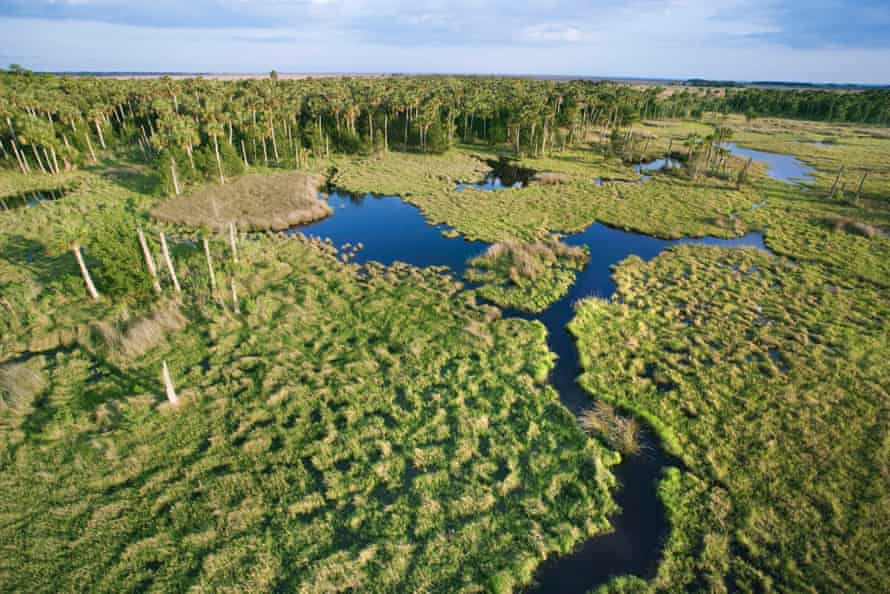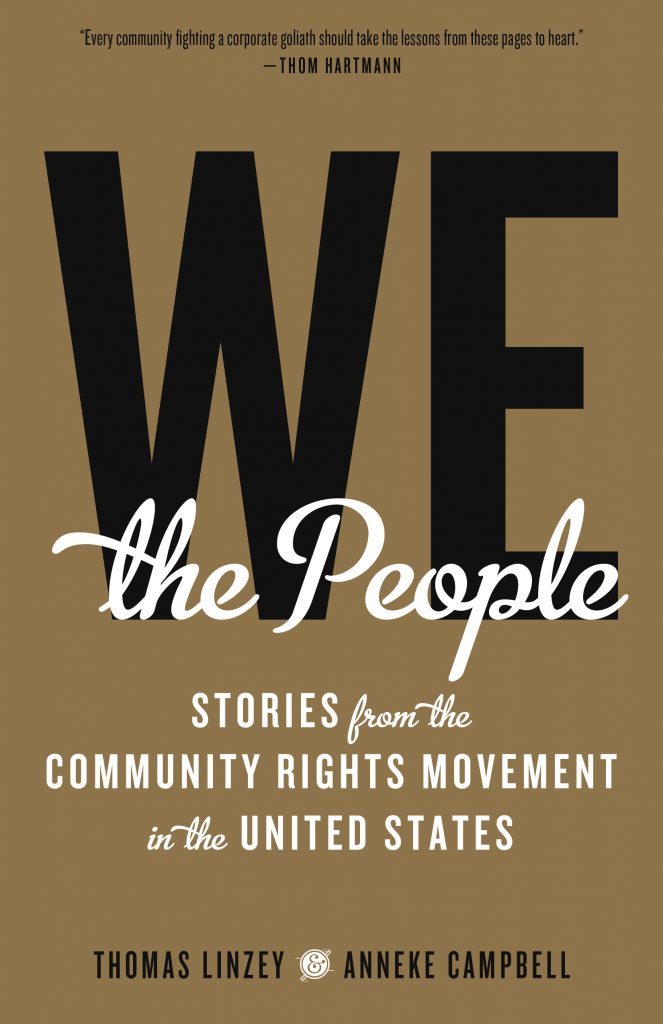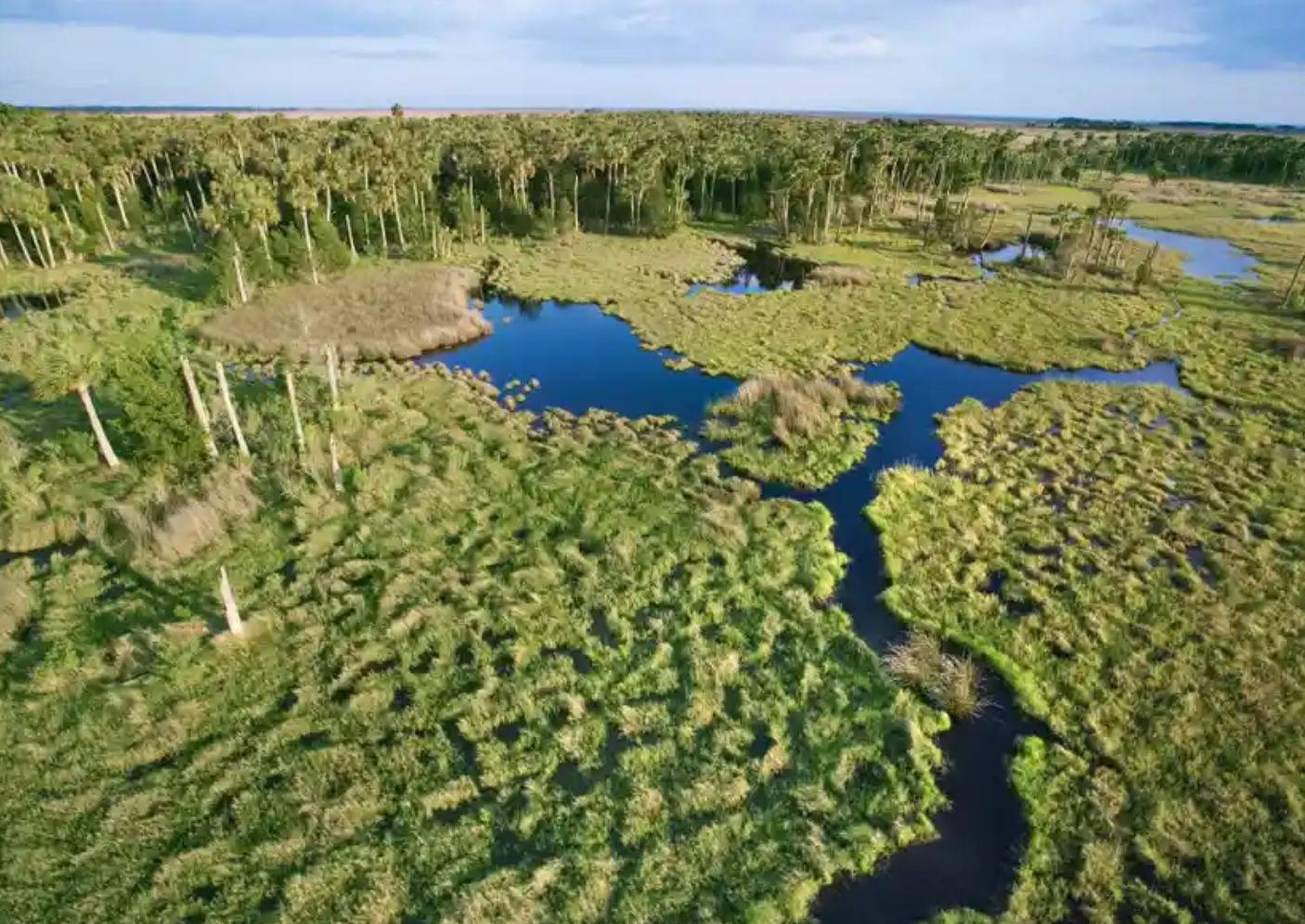By Isabella Kaminski
The Guardian
May 1st, 2021
A novel lawsuit is taking advantage of a local ‘rights of nature’ measure passed in November in effort to protect wetlands

A network of streams, lakes and marshes in Florida is suing a developer and the state to try to stop a housing development from destroying them.
The novel lawsuit was filed on Monday in Orange county on behalf of the waterways under a “rights of nature” law passed in November. It is the largest US municipality to adopt such a law to date.

The listed plaintiffs are Wilde Cypress Branch, Boggy Branch, Crosby Island Marsh, Lake Hart and Lake Mary Jane.
Laws protecting the rights of nature are growing throughout the world, from Ecuador to Uganda, and have been upheld in courts in India, Colombia and Bangladesh. But this is the first time anyone has tried to enforce them in the US.
The Orange county law secures the rights of its waterways to exist, to flow, to be protected against pollution and to maintain a healthy ecosystem. It also recognizes the authority of citizens to file enforcement actions on their behalf.
The suit, filed in the ninth judicial circuit court of Florida, claims a proposed 1,900-acre housing development by Beachline South Residential LLC would destroy more than 63 acres of wetlands and 33 acres of streams by filling and polluting them, as well as 18 acres of wetlands where stormwater detention ponds are being built.
In addition to seeking to protect the waterways’ intrinsic rights, the suit claims the development would disrupt the area’s hydrology and violate the human right to clean water because of pollution runoff from new roads and buildings.
Chuck O’Neal, president of campaign group Speak Up Wekiva who will be representing the wetlands in court, told the Guardianhe looks forward to giving them a voice. “Our waterways and the wildlife they support have been systematically destroyed by poorly planned suburban sprawl. They have suffered in silence and without representation, until now.”
The housing development, known as the “Meridian Parks Remainder Project”, needs a development permit from the city of Orlando and a dredge-and-fill permit from the Florida department of environmental protection to proceed. The suit seeks to block these from being issued.
O’Neal said he hopes the court “reaches beyond current conventional thinking” in considering the case. “This is how the evolution of rights has occurred in western law since the signing of the Magna Carta through the abolition of slavery, through women’s suffrage and through court decisions such as Brown vs the Board of Education and most recently the acceptance of marriage equality.”
Thomas Linzey, senior legal counsel at the Center for Democratic and Environmental Rights who helped secure Orange county’s rights of nature law last year, said: “Given the rampant development that’s occurred in Florida over the past 30 years, and the power struggle between the state government and local government over these issues, there are multiple grounds for a court to hold that the development cannot proceed as proposed.”
The center calculates that more than 9m acres of wetlands have been destroyed in Florida since it became a state in 1845. They say this has had profound impacts on water quality and species, as well as flood control.
The Florida department of environmental protection said it would not comment on pending litigation. Beachline South Residential could not be reached directly for comment. But in its November application for a dredge-and-fill permit it said it would offset the damage caused by buying federal mitigation credits.
Since the success of Orange county’s charter amendment, which was approved overwhelmingly by voters, the Florida Rights of Nature Network has received requests for assistance from citizens in municipalities around the state.
The case echoes global developments, such as a lawsuit filed on behalf of the Vilcabamba River in Ecuador, which pioneered the establishment of nature rights in that country’s constitution. The court ruled in favor of the river in 2011 and ordered damage caused to it by a road-widening project to be remediated.
In 2017, an Indian court declared that the Ganges and Yamuna rivers as well as Himalayan glaciers, lakes and forests should be given legal personhood in an attempt to protect them from environmental damage.







